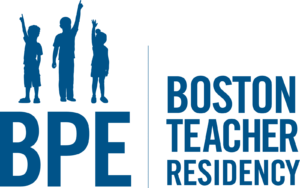August 1, 2024 — The Boston Teacher Residency (BTR) program celebrates 20 years of “driving student learning and achievement by equipping new teachers to make an immediate impact in the classroom.” BTR celebrated its milestone with a reception attended by staff and partners in June, and NCTR was present. NCTR Chief Growth Officer Jill Pitner and CEO Kathlene H. Campbell, Ph.D., recognized the lifelong partnership between NCTR and BTR and how NCTR would not be who we are today without their passion, unwavering commitment, and support.
 The Boston Teacher Residency has much to celebrate: Since 2003, the program has prepared more than 740 new teachers, serving 18,000 Boston Public School students. As an exemplar program, BTR’s model has been replicated in 35 cities and three countries, according to its website.
The Boston Teacher Residency has much to celebrate: Since 2003, the program has prepared more than 740 new teachers, serving 18,000 Boston Public School students. As an exemplar program, BTR’s model has been replicated in 35 cities and three countries, according to its website.
We asked Boston Teacher Residency’s Executive Director Jesse Solomon about what it means for the program to mark 20 years:
Q: As an exemplar program, what/who do you attribute to the longevity of the Boston Teacher Residency?
I attribute our longevity to a few key factors:
1) We have had the really good fortune of having an exemplary group of skilled, committed teacher educators who have served as mentor teachers, instructors, clinical teacher educators, and program directors. While the program has gone through many changes, and certainly had its ups and downs, we have always had staff who are both mission-aligned and dedicated to figuring out what is best for young people. Those folks have kept us moving forward.
2) We had three key factors at our creation–which I think laid the groundwork for our longevity: a) A superintendent with a strong vision and unwavering commitment to instruction, b) a nonprofit partner with the right expertise, operational know-how and connections, and c) a funding partner willing to take the initial risk and leverage their dollars for sustainability down the line. All three factors were critical and combined to get us off to the start we needed to make it through the first couple of years.
3) An appetite for new pathways into teaching–as exemplified by NCTR and the many residency programs across the country–that picked up some of the early momentum and has carried the whole field forward.
Q: We appreciate our collaboration with your teacher residency program. How would you say NCTR has contributed to the growth & sustainability of the Boston Teacher Residency? Is there a particular moment you’d like to highlight?
As I started to say above, NCTR has been largely responsible for the continued momentum and support for residencies across the country. NCTR’s advocacy and field-building has resulted in a funding and policy landscape that has allowed BTR (and so many other programs) to thrive.
In terms of our day-to-day here at BTR… we had a very selfish interest in the founding of NCTR, because we wanted to be in community with like-minded teacher educators and programs with whom we could learn and grow. Our staff today benefit greatly from the connections they are able to make with their colleagues across the country, facilitated by NCTR. There is no question in my mind that our work is better as a result.
Q: What are your plans/hope for the next 20 years of the program?
A major question for all of us in teacher preparation and development has to do with building a field. To state the obvious, no one program is going to recruit and prepare and support all the high-quality teachers our schools need. So the issue for us is how we come together to support each other so that an ever-increasing number of new teachers enter the field with the skills, competencies, and mindsets needed to support all students to learn at high levels. It’s one thing to have bright spots, quite another to ensure that every young person has access to a great teacher.
Connected to that are two other big issues:
A) How do we continue to change the job of teaching so that it is both sustainable and set up to serve young people well? There is just not enough time in the day for most teachers–with the job, as it is currently constructed–to do all the things our young people and their families need, not enough time to do all the things we train them to do in our residency programs. How can we think differently about time, about collaboration and teaming, about specialization, about AI? We have been having some version of this conversation for decades, but the job has almost not changed at all. And we have almost completely snapped back from the greatest disruption our schools have ever seen–the pandemic–to the old model, learning nothing new as a system. This is not a sustainable model.
B) Related to the two ideas above: How do we build more of a career ecosystem for prospective teachers entering the field? As it stands, each individual is left to identify the next stage/program/employer to move ahead as a teacher. What if we gave people more of a roadmap: first you explore the profession, then you enter a preparation program, then you get a job in a place that is a good fit for your interests and skills, there you make sure you have the right support, and as you get better, you think about how you might take on different leadership opportunities. We could show prospective teachers a profession that has a shape, that has advancement possibilities. Further, we on the programmatic and employment sides could work together much more closely to make these difficult transitions much more seamless for teachers.